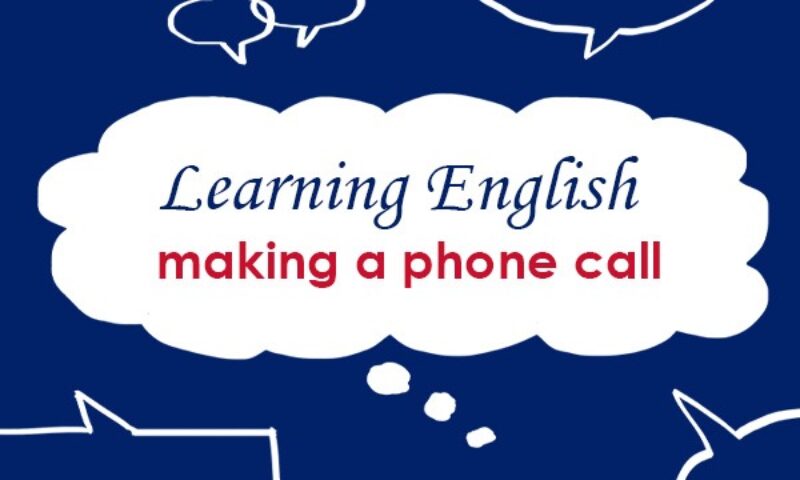
Making a phone call in English can be intimidating, so here are some phrases to help you.
Once you’ve made the call and someone answers, you will need to tell them who you are. Use Hello, it’s … (here).
Hello Mr Hall, it’s Alex Ronaldson here.
Hello, it’s Marie. Can I speak to Lisa, please?
If the person you are ringing does not know you, or know who you are, use Hello, my name is … To explain more about who you are, use I’m …
Hello, my name is Rosie Green. I’m a colleague of Peter’s.
Hello, my name is Lorna McCall. I’m Tanya Hill’s assistant.
To check that you are speaking to the right person, use Is that … ?
Is that Rolf?
Is that the doctor’s surgery?
If you want to ask for somebody, use Is … there?, Can I speak to … ? or Could you put me through to …?
Is Olivier there, please?
Can I speak to the manager, please?
Could you put me through to Johanna, please?
If the person you want to speak to is not there, you may hear Sorry, he’s not here. or Sorry, she’s not in. If the person is there, you may be asked Who’s calling, please? If you hear this, you should say your name. To ask someone to pass on information, use Could you … ?
Could you give her a message, please?
Could you ask him to call me back?
To say why you are calling, use I’m phoning/calling/ringing about … or I’m phoning/calling/ringing to …
I’m calling about Dad’s birthday party.
I’m ringing about the ballet classes.
I’m phoning to arrange for our carpets to be cleaned.
I’m calling to find out whether you sell garden furniture.
To explain where you are or what company or organization you are from, use I’m calling from …
I’m calling from the tax office.
I’m calling from the charity ‘Help our Horses’.
Come back for more blogs on using English in everyday situations: https://blog.collinsdictionary.com/language-learners/learning-english/
All opinions expressed on this blog are those of the individual writers, and do not necessarily reflect the opinions or policies of Collins, or its parent company, HarperCollins.




collins_dictionary_official
The home of living language. #wotd #wordlovers #collinsdictionary
Read our word of the week definitions and blog posts: